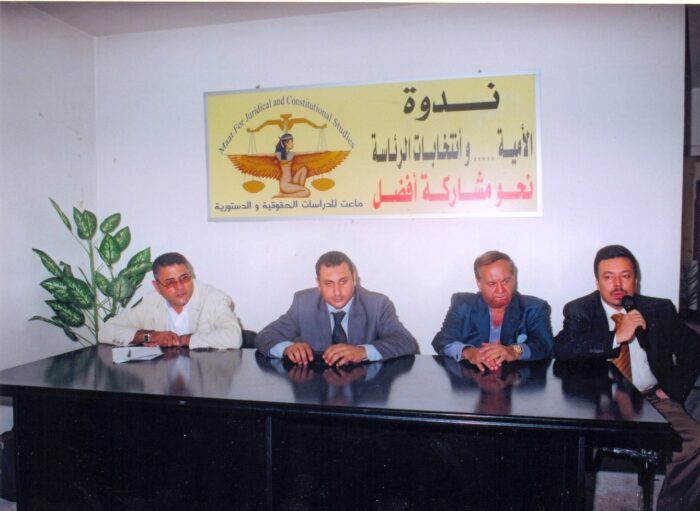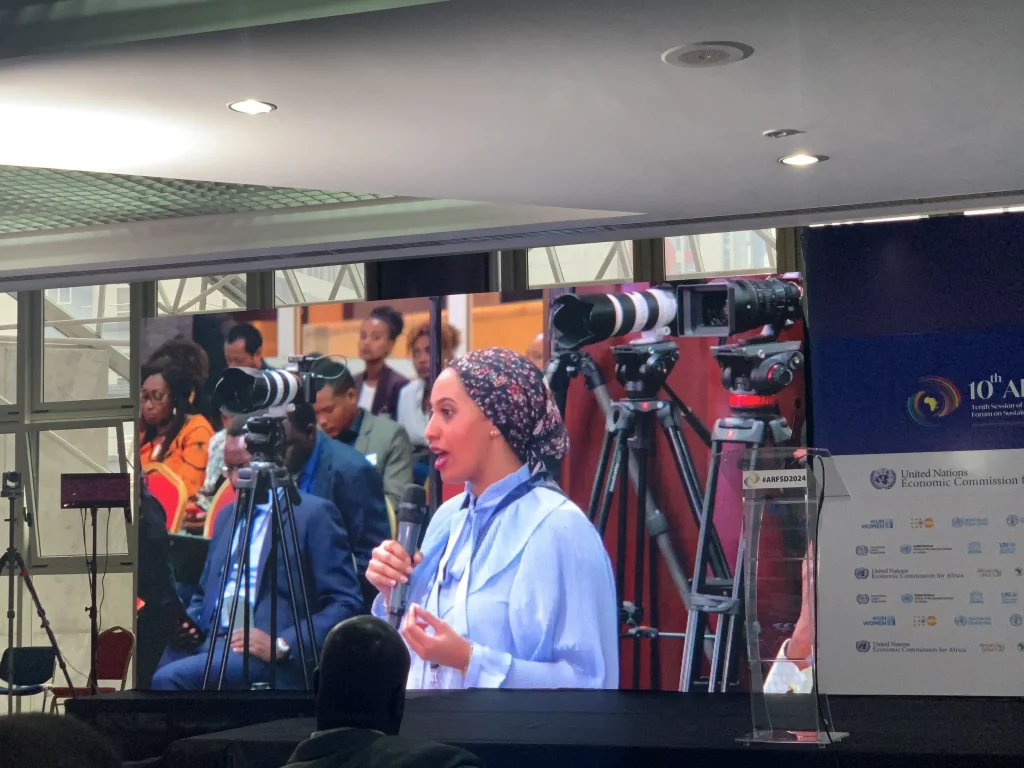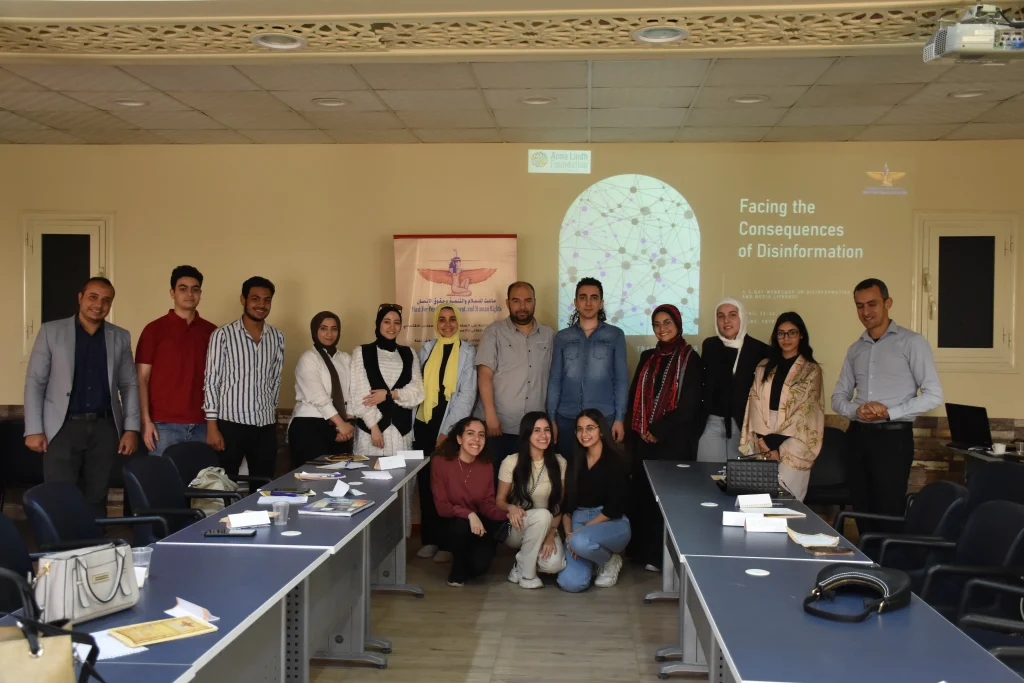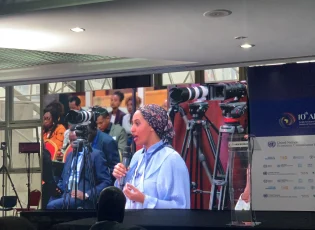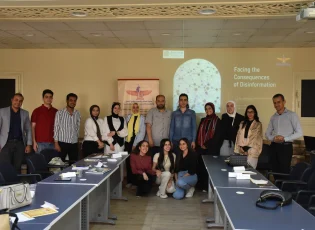The Maat Center for Human Rights and Constitutional Studies held a seminar on the role of illiteracy and the presidential elections, in which Ayman Aqil, the director of the center, the Coptic thinker Dr. Nabil Luqa Bawi, Professor Gamal Eid, the director of the Arab Network for Human Rights Information, and the lawyer, Mr. Muhammad Radi, spoke.
At first, Ayman Aqil, director of the center, went to the conclusion that the problem we are talking about today bears a double character. It seems social in general, but it is almost confined to the political aspect that is the subject of discussion today. Alphabetical illiteracy is one of the vocabulary of the Egyptian reality and a social phenomenon of social origin governed by many determinants Poverty plays the primary role in its emergence on the surface and its path of development through a number of illiterates, with political illiteracy being the last and highest stage.
Therefore, this symposium raises important questions: Is alphabetic illiteracy related to political illiteracy? And how can progress be made in this field? Besides, is it necessary that all my mother is alphabetic, and my mother is political? Does illiteracy affect the presidential elections?
Aqeel emphasized that illiteracy plays a major role in the issue of capacity or lack of capacity for proper mobilization, and pointed to the percentage of 771 TP1Ts that did not participate in the electoral process, although not all of them express illiteracy.
Aqeel went on to develop future visions and opinion on how to reduce this percentage and achieve effective participation in the upcoming parliamentary elections.
Aqil also pointed out that despite the excesses the Egyptian experience witnessed in choosing the president among more than one candidate, it expressed the people's freedom of choice and retracted the theory of fraud, which many advocated for so long.
As for Mr. Mohamed Radi “the lawyer”, he went to illiteracy, not the only basic and determinant measure of the differences between political participation, referring to a set of other determinants, and he emphasized that the election scene that took place on September 7 expressed the people's will to choose Mubarak and without forgery, despite transgressions. Supporters of the National Party, also emphasized the neutrality of security in this matter.
And about his vision of the electoral scene and the parties that applied to participate in the electoral process, he said that he did not see any way to compete between these candidates and President Mubarak.
As for Mr. Gamal Eid, director of the Arab Network for Human Rights Information, he argued that illiteracy, although dangerous to societies, does not represent a real obstacle to political participation, because a large proportion of illiterates are the ones who voted in the elections, indicating that we do not deny its impact on the presidential elections. He stressed the role of the state in combating illiteracy, with the need to develop visions and a future image for broader and greater political, economic and social development.
Eid dealt with the Egyptian electoral scene with an evaluation, pointing to fraud in the results, which is the need for clarity in the vision is the main determinant of fair elections in the future, and to ensure higher political participation away from temptations and threats.
As for the Coptic thinker, Dr. Nabil Luqa Bibawi, he went to the importance of awareness and knowledge in obtaining better participation, and went to the role played by the National Party for its members and supporters, considering that it is the core of political action to mobilize and mobilize supporters and ensure their participation in political life. Bibawi denied that There will be any fraud in these elections, pointing out that this theory has receded and slacked with the passage of Egypt's experiment, the first of its kind in more than seven thousand years.
Babawi emphasized that the percentage of the 231 TP1T that participated in choosing Mubarak is considered a moderate percentage when compared to the rates in the world. In the United States of America, the participation rate is 40%, going to the point that it is a healthy phenomenon indicating the prevailing democratic climate in the Egyptian environment.
Bibawi went on to say that what is being discussed now is regarding illiteracy rates and their impact on political participation, and how to advance and prepare the Egyptian homeland for effective political participation.
In the end, the symposium recommended the necessity of adopting a future human rights and constitutional vision and amending Article 76 of the constitution after the amendment that was made to it to ensure better political participation and allow political parties to exist and participate without restrictions that limit their access to the masses.
The seminar was attended by representatives of civil society organizations, journalists and lawyers.





